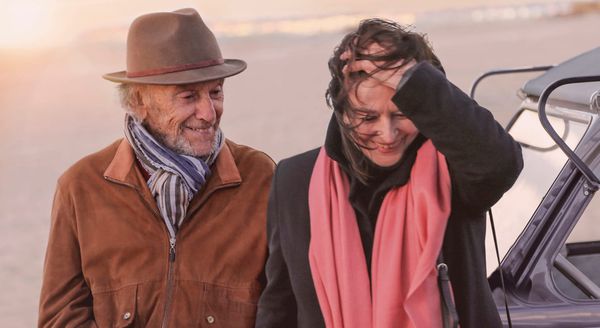Eye For Film >> Movies >> The Best Years Of A Life (2019) Film Review
The Best Years Of A Life
Reviewed by: Richard Mowe

It must be an opportunity that is unique in the annals of cinema: to revisit the same characters with the same actors 53 years after the original film cemented their careers. We are, of course, talking about Jean-Louis Trintignant, Anouk Aimée and director Claude Lelouch who won an Oscar for A Man And A Woman (Un Homme Et Une Femme) all those decades ago.
It was an obviously tempting and perhaps rather risky undertaking that actually pays off as Trintignant and Aimée, both now in their 80s, reprise their roles as lovers brought together again despite the forces in the original narrative that had prised them apart.

No doubt about it, the film is unashamedly sentimental and, at times, stretching credulity but it is also touching and tender, which is more than can be said for the last Lelouch reprise of his signature film with an inferior sequel A Man and a Woman: 20 Years Later, from 1986.
This time he is in full control of his characters, with Trintignant’s dashing racing driving Jean-Louis Duroc a pale shadow of his former self - residing in a care home because of encroaching dementia, a figure confused and living with his memories. Aimée’s character of Anne Gaultier, however, is faring well and running a small shop in a Normandy town with grown-up children and grandchildren keeping an eye on her.
The pair meet up again at the bidding of Jean-Louis’s son Antoine (played by Antoine Sire, who appeared as a child first time around) who thinks that such an encounter will be good for his father’s wellbeing. At first, his dad doesn’t recognise Anne but then the memories start to come flooding back and they spend many hours in conversation. Here, Lelouch melds scenes from his original film (which was ground-breaking in its free-spirited camera movements and the use of monochrome and colour) with the present. He also mixes in, at one stage, a car speeding through the streets of Paris (a cult Lelouch short film derived from the director’s love of cars) with images from both films, which has a poetic quality.
Dreams, memories and reality all intermingle to rather intoxicating effect with the two actors and their history together exerting a powerful and emotional sway as thoughts of mortality and fate come in to play.
What could have been trite and overly contrived achieves a more significant dimension, all wrapped in a melodious score that has Francis Lai’s infectious original score in mind, but also boasts additional music from Calogero.
At one point Anne suggests that “All love stories end badly … they only end well in the movies” which probably is why Lelouch has remained a filmmaker par excellence in dealing with the human condition in all its glories and disappointments.
Reviewed on: 23 May 2019Related Articles:
Living the storyLelouch goes back to the future in Cannes
Here in my car
The observer
















